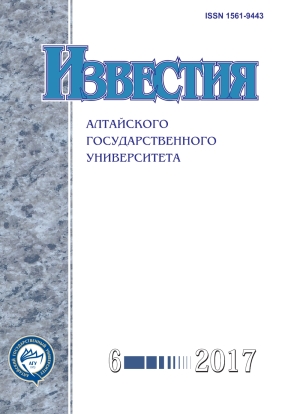Due Сonduct of the Рarties in the Сourt Нearing on the Сriminal Сase
Abstract
The article examines the problem of formation of proper procedural conduct of the parties during the judicial proceedings in the criminal case, which is due to the need to ensure adversarial procedure in this stage of criminal proceedings. The authors determine the basis of the proposed procedure — procedural conduct and reveal its contents; substantiate the determining impact of the procedural conduct of the parties on the implementation of objective and fair justice on the criminal case. The analysis is given to the specific court situations that present conflict of criminal procedural law regulating the relations arising between the court and the parties at the stage of the hearing. The authors come out with their own position regarding the need for the legislator to lay on the professional representatives of the parties clearly expressed criminal-procedural duties which must be one of the basic elements of the procedural status of each participant of criminal proceedings, and their proper execution must ensure the continuity and competitiveness of court proceedings on the criminal case.
DOI 10.14258/izvasu(2017)6-09
Downloads
Metrics
References
Комментарий к Уголовно-процессуальному кодексу РФ / науч. ред. В.Т. Томин, М.П. Поляков. — 7-е изд., пере-раб. и доп. — М., 2013.
Большая советская энциклопедия : 2-е изд. — Т. 25. — М., 1958.
Гурулев Д.В. Прекращение уголовных дел в связи с деятельным раскаянием // Законность. — 2014. — № 7.
Вепрев В.С. Основания уголовно-процессуальной ответственности : автореф. дисс. ... канд. юрид. наук. — Челябинск, 2006.
Зеленина О.А. Процессуальная ответственность в уголовном судопроизводстве: содержание и реализация // Журнал российского права. — 2012. — № 5.
Авдеев Е.А. Процессуальное поведение в уголовном судопроизводстве // Актуальные проблемы борьбы с преступлениями и иными правонарушениями : материалы 15-й Междунар. науч-практ. конф. — Барнаул, 2017. — Ч. 1.
Вершинина С.И. Обязательность порядка судопроизводства как гарантия осуществления правосудия по уголовным делам // Проблемы отправления правосудия по уголовным делам в современной России: теория и практика : материалы V междунар. науч.-практ. конф., Курск, 11-13 апреля 2013 г. — Курск, 2013.
Поляков А. Какие последствия должен повлечь отказ от выступления в прениях с защитной речью? // Новая адвокатская газета. — 2013. — № 23.
Мельниченко Р. Является ли отказ адвоката от прений легальным методом защиты или это процессуальная провокация? // Новая адвокатская газета. — 2017. — № 7.
Стандарт осуществления адвокатом защиты в уголовном судопроизводстве (принят VIII Всерос. съездом адвокатов 20.04.2017) [Электронный ресурс]. — URL: http://legalacts.ru/doc/standart-osushchestvlenija-advokatom-zashchity-v-ugolovnom-sudoproizvodstve-prinjat-viii/
Copyright (c) 2017 М.А. Неймарк, Е.Н. Петухов

This work is licensed under a Creative Commons Attribution 4.0 International License.
Izvestiya of Altai State University is a golden publisher, as we allow self-archiving, but most importantly we are fully transparent about your rights.
Authors may present and discuss their findings ahead of publication: at biological or scientific conferences, on preprint servers, in public databases, and in blogs, wikis, tweets, and other informal communication channels.
Izvestiya of Altai State University allows authors to deposit manuscripts (currently under review or those for intended submission to Izvestiya of Altai State University) in non-commercial, pre-print servers such as ArXiv.
Authors who publish with this journal agree to the following terms:
- Authors retain copyright and grant the journal right of first publication with the work simultaneously licensed under a Creative Commons Attribution License (CC BY 4.0) that allows others to share the work with an acknowledgement of the work's authorship and initial publication in this journal.
- Authors are able to enter into separate, additional contractual arrangements for the non-exclusive distribution of the journal's published version of the work (e.g., post it to an institutional repository or publish it in a book), with an acknowledgement of its initial publication in this journal.
- Authors are permitted and encouraged to post their work online (e.g., in institutional repositories or on their website) prior to and during the submission process, as it can lead to productive exchanges, as well as earlier and greater citation of published work (See The Effect of Open Access).








